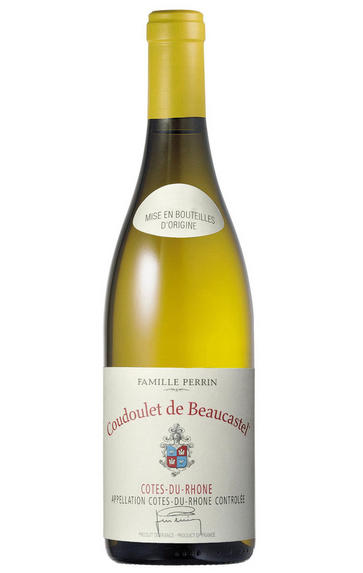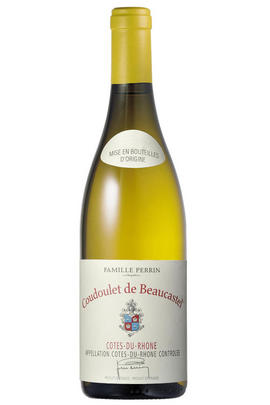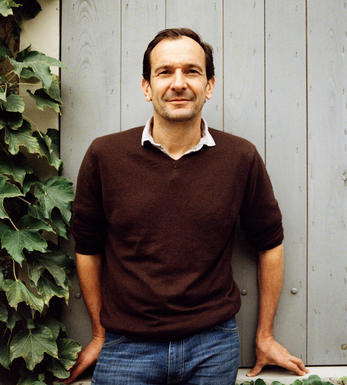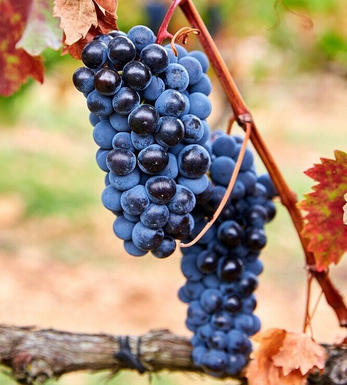
2009 Côtes du Rhône Rouge, Coudoulet de Beaucastel, Famille Perrin

Critics reviews
Robert M. Parker, Jr. - 31/10/2011
(Jancis Robinson, Julia Harding MW & Tamlyn Currin- jancisrobinson.com, 19 Nov 2010)
About this WINE

Chateau de Beaucastel
The Perrin family of Châteauneuf-du-Pape are one of the Rhône Valley’s greatest vineyard owners. With over 200 hectares of top level, prime vineyards at their fingertips, they have the terroir and skill required to produce some of the region’s finest wines.
The estate traces its history back to a plot of Coudoulet vines bought by Pierre de Beaucastel in 1549. The estate was transferred into the Perrin family in 1909 through marriage, where it remains firmly to this day. Despite being one of the old guards of the region, they are also one of the most progressive estates. They were one of the first converts to organic and biodynamic faming in Châteauneuf-du-Pape, which they adopted in 1950 and 1974 respectively.
César Perrin, winemaker at Beaucastel, is very happy with his 2021s. He tells of a cool and long growing season producing wines which are bright, fresh and lower in alcohol than has become the norm in recent years. Their Syrah vines were more heavily impacted by the Spring frosts, so a higher percentage of Mourvèdre - already signature of the Perrin’s style - went into the Beaucastel red than usual (40%, whereas the norm is nearer 30%). This helps bolster the dark fruit profile of the wine, as well as ensuring a balanced tannin structure.
We offered the Perrin’s full range of wines upon release in October last year, though we held back a small amount of their two flagship Château de Beaucastel wines so we could offer them to anyone who missed out.

Southern Rhône Blend
The vast majority of wines from the Southern Rhône are blends. There are 5 main black varieties, although others are used and the most famous wine of the region, Châteauneuf du Pape, can be made from as many as 13 different varieties. Grenache is the most important grape in the southern Rhône - it contributes alcohol, warmth and gentle juicy fruit and is an ideal base wine in the blend. Plantings of Syrah in the southern Rhône have risen dramatically in the last decade and it is an increasingly important component in blends. It rarely attains the heights that it does in the North but adds colour, backbone, tannins and soft ripe fruit to the blend.
The much-maligned Carignan has been on the retreat recently but is still included in many blends - the best old vines can add colour, body and spicy fruits. Cinsault is also backtracking but, if yields are restricted, can produce moderately well-coloured wines adding pleasant-light fruit to red and rosé blends. Finally, Mourvèdre, a grape from Bandol on the Mediterranean coast, has recently become an increasingly significant component of Southern Rhône blends - it often struggles to ripen fully but can add acidity, ripe spicy berry fruits and hints of tobacco to blends.


Buying options
Add to wishlist
Description
Rhône 2009 - Berrys Recommends
Consistently excellent, the 2009 Coudoulet de Beaucastel again punches well above its humble Cotes du Rhone classification. With lots of ripe fruit and warm spice and a lovely balance and length, this is a real crowd pleaser.
(Fergus Stewart, BBR Fine Wine)
Made from all thirteen varieties, this wine includes Mourvèdre, Grenache and Syrah as majority shareholders but when one tastes the other grapes, one can see how carefully the edifice has been constructed. Counoise lends smoky, tannic complexity for example; conversely the Cinsault is soft and elegant, adding a feminine touch. The ensemble promises to be a classic Beaucastel wine, with black fruits, truffles, spice and bitter chocolate all evidenced. This is symphonic in scope.
(Simon Field MW BBR Buyer)
wine at a glance
Delivery and quality guarantee